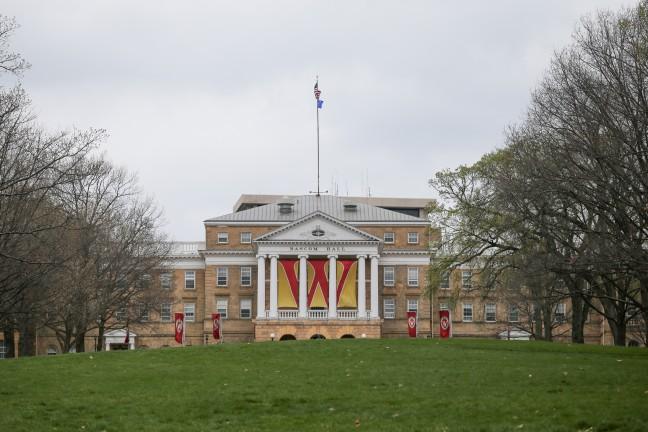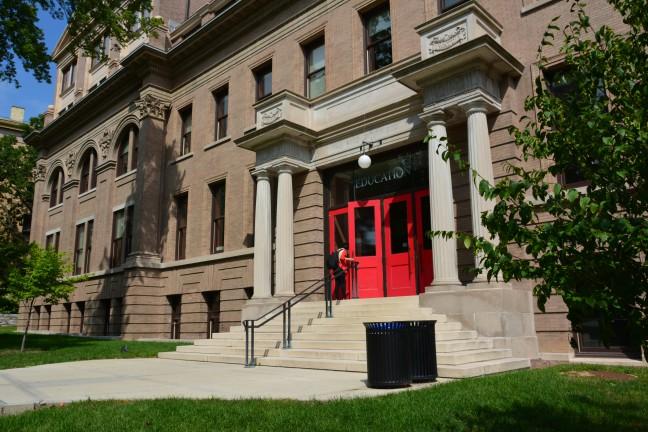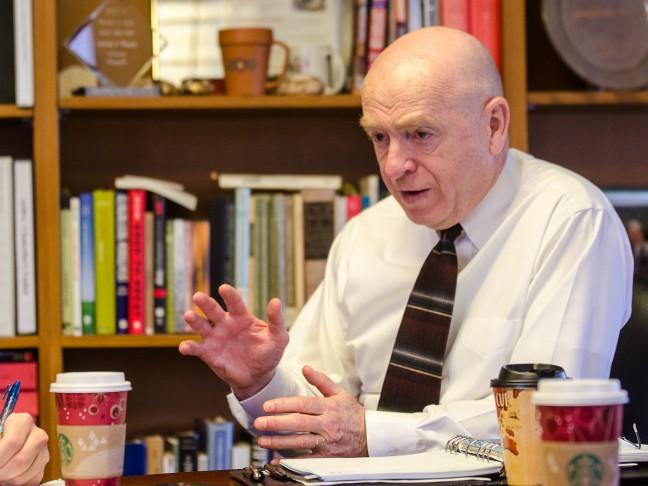
Calls of “Sexist, racist, anti-gay, don’t you take our night away” and “Two-four-six-eight, no more date rape” rang throughout State Street and the Capitol as approximately 150 people marched in the Take Back the Night rally Thursday.
The marchers started at Library Mall and carried signs proclaiming “Women united will never be defeated” and “We are all people of worth.” The march was sponsored by the Campus Women’s Center.
The protesters were also shouting slogans out of electronic megaphones while walking down to the Capitol where they held a candlelight vigil to protest sexual assault and domestic violence.
During the vigil, several women spoke about their personal experiences and the importance of raising awareness of the problem of sexual assault.
Lilada Gee, author of “I Can’t Live Like This Anymore,” spoke at the vigil and called for women to take back more than just the night.
“I don’t just want the night back, I want my hopes and my dreams and my piece of mind and my body back,” Gee said.
During the vigil, some marchers chose to share their personal stories and struggles. They requested their names and stories not be recorded.
University of Wisconsin freshman Pete Clancy, who was holding a sign that said “Real men don’t hurt women,” said he came to the rally because this is an important issue — especially on a college campus.
UW senior Michele Totoni said the rally was a positive way to let people know this is still an issue affecting people every day. She added everyone who attended the rally had a personal connection with some kind of assault or violence.
“It’s the type of thing where all of us here have been touched by it, whether we know it or not,” Totoni said.
CWC’s Programming Director Tina Trevi?o-Murphy said she was happy with the turnout. She added it was a great experience and everyone really felt like they were a part of a community.
Trevi?o-Murphy said the CWC has been hosting the event for at least 10 years. She added the rallies began in the 1970s and have been held at Madison since at least the 1990s, and probably earlier.
Sapir Sasson, media advocate Promoting Awareness Victim Empowerment, said after someone is sexually assaulted, he or she should do whatever they are comfortable with. She added there is no right or wrong answer.
Sasson said if a friend tells you he or she has been assaulted, the best thing to do is just listen and thank him or her for trusting you enough to tell you.
“The important thing is to not pressure them to take any course of action; so much power has already been taking away from them,” Sasson said. “So it’s important to help them gain control over their life by letting them choose what to do, even if you don’t agree with their decision.”
Sasson added there are lots of resources on or near campus for victims of assault. She said the Student Advocacy and Judicial Affairs are well trained to help victims, and the Rape Crisis Center has individual and group therapy available.















